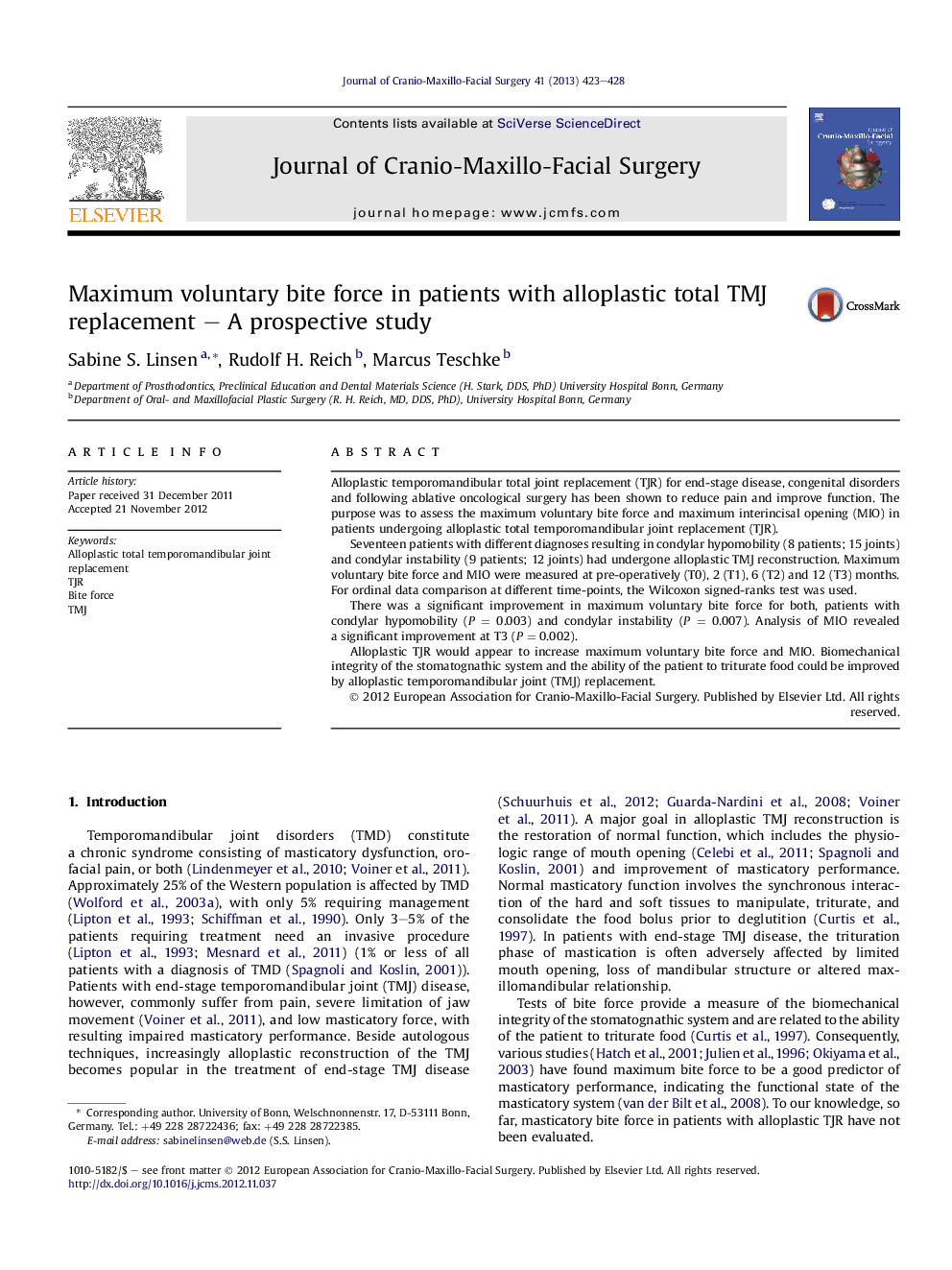| Article ID | Journal | Published Year | Pages | File Type |
|---|---|---|---|---|
| 3142971 | Journal of Cranio-Maxillofacial Surgery | 2013 | 6 Pages |
Alloplastic temporomandibular total joint replacement (TJR) for end-stage disease, congenital disorders and following ablative oncological surgery has been shown to reduce pain and improve function. The purpose was to assess the maximum voluntary bite force and maximum interincisal opening (MIO) in patients undergoing alloplastic total temporomandibular joint replacement (TJR).Seventeen patients with different diagnoses resulting in condylar hypomobility (8 patients; 15 joints) and condylar instability (9 patients; 12 joints) had undergone alloplastic TMJ reconstruction. Maximum voluntary bite force and MIO were measured at pre-operatively (T0), 2 (T1), 6 (T2) and 12 (T3) months. For ordinal data comparison at different time-points, the Wilcoxon signed-ranks test was used.There was a significant improvement in maximum voluntary bite force for both, patients with condylar hypomobility (P = 0.003) and condylar instability (P = 0.007). Analysis of MIO revealed a significant improvement at T3 (P = 0.002).Alloplastic TJR would appear to increase maximum voluntary bite force and MIO. Biomechanical integrity of the stomatognathic system and the ability of the patient to triturate food could be improved by alloplastic temporomandibular joint (TMJ) replacement.
